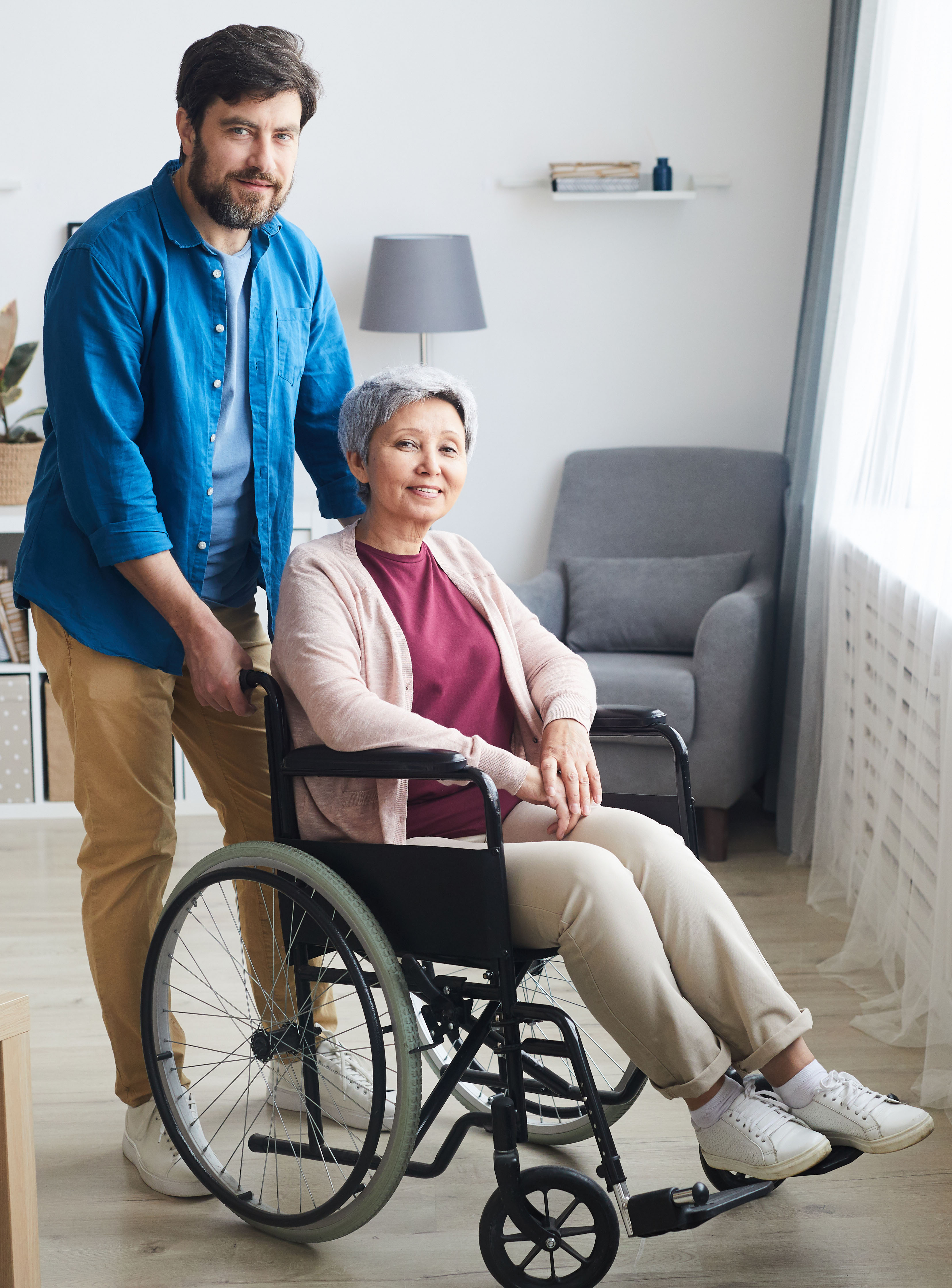
A Guide for Preserving Independence
With Senior Moments, Mild Cognitive Impairment and Alzheimer’s Disease.
By Jonathan L. Liss, M.D., D.ABPN, D.ABSM
Copywrite 2015-2021, All rights reserved
Section IV: Caring For The Caregiver
Introduction
Care partners work very hard. Studies have demonstrated that care partners of loved ones with mild disease spend up to four hours per day helping, while care partners of moderately and severely afflicted Alzheimer’s patients can spend ten hours or more in support. The most important way to keep a person with Alzheimer’s disease emotionally and physically healthy is to make certain that you are emotionally and physically healthy. It is critical for caregivers to recognize that taking guilt-free personal time for pleasure and personal health needs is exactly what the doctor ordered. Without you, what chance does your
loved one have of staying home, visiting relatives, maintaining financial stability, or feeling joy? It is not selfish to take personal time, it is an act of love.
With education, support, and a willingness to care for yourself, you can improve the quality of life for the entire household. With this in mind, the following topics for the caregiver are discussed:
- Declaration of Appreciation
- Family Squabbles
- Personal Health Care
- Time-off


Declaration of Appreciation
With the knowledge that caregivers play a key role in the response to memory related illnesses, it is time to pause and acknowledge the tremendous physical and emotional effort the
caregiver assumes. If you are this person, take a moment for a deep cleansing breath. Let your shoulders relax. Make time to have a cup of coffee and toast yourself for your efforts.
Even if no one else has recognized what you are going through, help is available through your doctor, the Alzheimer’s Association and many support agencies listed Here.
Family Dynamics
In most instances, the majority of care tends to fall on a single person. Often, other family members take on the role of judge and advisor, rather than helper or added care partner. If the care partner is the patient’s spouse, it is typical for the children to be quite critical. Likewise, if the care partner is an adult child, his or her siblings can be very judgmental. It is not unusual to
hear complaints that Dad seems to be bored, depressed, confused, or sloppy. Early in the disease the caregiver is often accused of being overbearing, suffocating, or even a “gold digger” as the other family members are in denial that a disease exists and unwilling to believe his or her parent is mentally declining.
It is not unusual for doctors to have family meetings with the sole purpose of helping the other children understand that a disease exists, that you are doing what is necessary, and that you need and deserve the emotional support of the rest of the family to excel at an otherwise thankless job. In these meetings, it is not uncommon for doctors to emphasize the importance of other family members sharing in the care, so that you can have at least two half-days off each week, for guilt-free personal time. It usually only takes one afternoon of care giving for another child to understand that this kind of care can be all consuming.
Sometimes the friction between siblings arises because of money. Either the other children feel that their parent’s money is being squandered by a ne’er-do-well sibling, or that the family inheritance is being manipulated to the benefit of the care-giving child. These are tougher issues for a doctor to offer help. However, helping the remainder of the family understand the
common burdens of a care partner, the state of their parent’s health, and expected progression of the disease, can do wonders to mend family rifts.



Personal Healthcare
As a care partner, you are in a high stress position. You are at increased risk for:
- Depression
- Anxiety
- High blood pressure
- Neglect of personal healthcare issues
Because of these risks and because it is critically important for the care partner to stay healthy, set aside time for guilt-free relaxation:
- Set aside time for personal healthcare, including counseling, if desired
- Consider joining local support groups and accessing education to prepare for the demands of caregiving
- Involve other family members
Time-Off
Another good source of relief is respite care. Most communities have a number of respite facilities that provide excellent care. The goal is to give you a needed break while feeling confident that your loved one is in good hands. Typically, half day, whole day, and overnight services are available for a fee.

The Alzheimer’s Association offers many resources for care partners: www.Alz.org.

Conclusion
If you are worried about your memory, it is time to get evaluated. Whether you are suffering from Senior Moments, Mild Cognitive Impairment or Alzheimer’s Disease, there are things that you can do, and things that can be done on your behalf to improve your thinking and protect your brain. By
seeking advice now, you are taking charge of your health and improving your chances of doing well.
Should you be diagnosed with Mild Cognitive Impairment or Alzheimer’s Disease, it is not the beginning-of-the-end but rather a new beginning. There is help now, and great hope for the future. By stimulating your mind, taking good care of your general health, creating a daily planner, and following your healthcare professional’s advice, you can seize the day. By taking control of your health, you can potentially add years of independence to your life.
If you are a caregiver, please recognize that you are not alone and that there are many resources available to help you excel. This booklet and your healthcare provider can help guide you to sources of support.
Through research, better medications are on the way and a cure for this disease will one day be achieved. Remember, researchers from around the world, and probably near you, are working tirelessly to make certain this hope is soon a reality. Visit TrialMatch.org to find available trials in your area or visit our Research Opportunities Page for more information on the trials currently being conducted at Columbus Memory Center.
